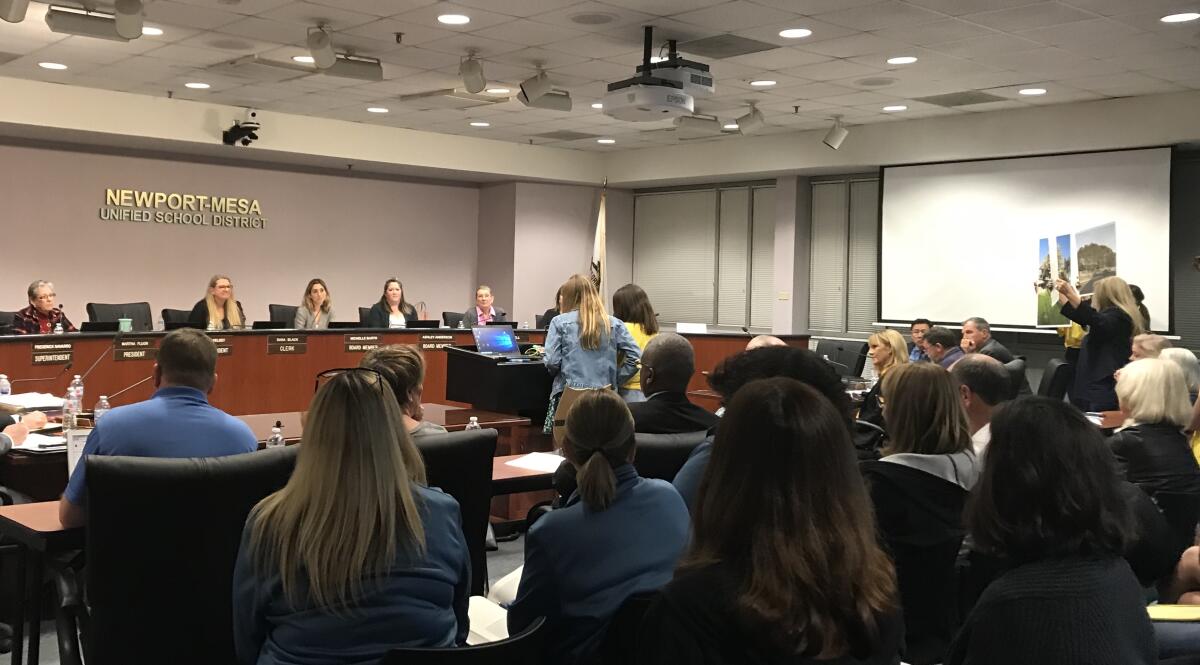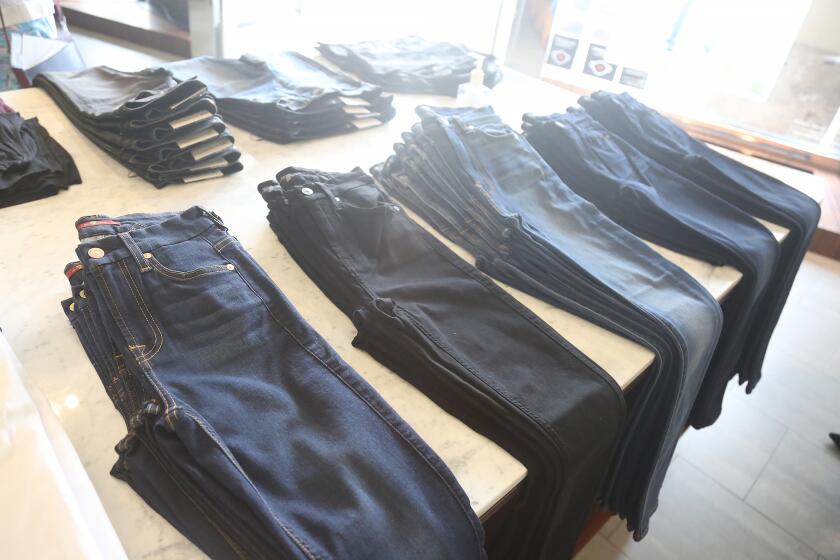Apodaca: Gratitude for a group of people with an often thankless job

- Share via
This Thanksgiving many of us will again express gratitude for the people in our communities who have mounted Herculean efforts to keep us going during the pandemic: the healthcare providers, first responders, teachers, supply-chain laborers and other essential workers who are deserving of our appreciation.
While we’re at it, we might spare a thought for school board members.
That’s right, school board members. Hear me out because they’ve had a rough year.
For some reason that I suspect has little to do with the decisions public school officials have actually made and is more an outgrowth of political agendas and conspiracy theories run amok, school boards have become the latest flashpoint in our nation’s culture wars.
School board meetings once were mocked as the archetype of bureaucratic banality, snoozefests with long-winded discussions about budgets and policies, and hackneyed accolades for students and staff. Board members have largely been political novices operating on the lowest tier of elected officialdom, many of whom earn little respect or financial compensation and who seldom aim to use their positions as a springboard to higher office.
They are characteristically local folks who put their kids through public schools and got a taste for greater involvement in the educational process by volunteering for PTAs, school foundations and committees. Many have been teachers themselves. Most just see a chance to make a difference by representing what they see as the interests of their communities by serving as stewards over district operations and finances.
To a large extent, these boards are quintessentially American institutions. Many countries — some with demonstrably better educational outcomes than ours — have more centralized school systems. But the preference in the U.S. — some consider it an obsession — for local control has always been the defining feature of our public schools.
In their own hyperlocalized way, school boards are seen to wield great power over what parents consider to be of the utmost importance — their kids’ welfare. It’s only natural that we hold board members to account. We want them to ensure the schools we send our children to are doing things as we think best.
As lockdowns end and things start opening back up, Patrice Apodaca takes a look at her wardrobe.
That’s why, despite the often tedious nature of their work, school board members are not strangers to controversy. Board meetings are forums where strong opinions are often aired on a variety of topics, including policy, curriculum, teacher pay and benefits, spending priorities, construction projects, and the hiring and occasional firing of top administrators.
But what’s happening now is different, both by degree and in terms of the demands being made.
Increasingly in the past year-plus, these largely unheralded public servants have been on the receiving end of expletive-laced tirades, fact-free accusations and even physical threats made by a loud, angry, antagonistic minority. Indeed, confrontations over pandemic-related policies and the way that history is taught have become so commonplace and so belligerent that many districts have had to beef up security at board meetings and other events.
It would be easy to write this development off as a consequence of heightened frustration over educational losses due to COVID-19. I’m not so sure. This view doesn’t explain why school boards are being attacked over critical race theory — a law school-level curriculum that isn’t even taught in public schools but has been conflated in disinformation campaigns with ethnic studies and anti-hate programs.
“School boards have become the focal point now nationally, I think because that’s where people think they can effect change,” said Karen Yelsey, who represents Newport-Mesa Unified School District’s Trustee Area 4 and is the board’s current president.
“People have every right to vent,” Yelsey said, adding that she understands how stressed everyone has been. But she has also noticed an increasing lack of civility, with some of the anger coming from people outside the district who nevertheless direct hostility toward her and her colleagues.
“I prefer to hear from our parents.”
Since COVID-19 began disrupting education, Yelsey has worked practically around the clock — including weekends and holidays — as the district has scrambled to adapt to the massive changes the pandemic forced on schools. She makes a point of responding to every email and phone call, does her best to provide answers, and tries not to take any criticism personally. Mostly, she just listens.
Next year Yelsey will retire when her current term ends. Her decision not to seek reelection is not related to the current climate, she said. After 16 years of service, and now a grandmother, she simply feels that it will be time to move on and devote more attention to her family.
School board members like Yelsey don’t always get a lot of love. Sure, they make mistakes, can be subject to influence and sometimes display a disconcerting tone deafness regarding parental concerns. Some people might find it difficult to muster any sympathy, much less gratitude; after all, board members ran for these positions.
But as they help schools recover from what has arguably been the biggest challenge they’ve ever tackled, we might take a beat to recognize their contributions and acknowledge that the work they do requires a capacity for composure and forbearance that is otherwise in short supply of late.
I’m not suggesting we give them a parade. Just maybe an occasional “thanks.”
All the latest on Orange County from Orange County.
Get our free TimesOC newsletter.
You may occasionally receive promotional content from the Daily Pilot.







